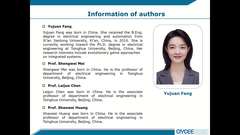
Start Time:2020-11-02 15:30 (Asia/Shanghai)
Duration:15min
Session:[A] Power System » [A2] Session 2 and Session 7
Tips: The file permissions under this presentation are only for participants. You have not logged in yet and cannot view it temporarily.

Comment submit